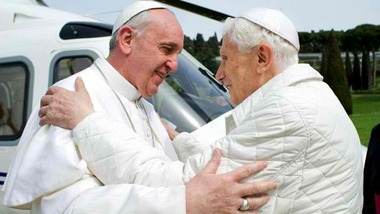
Francis and Benedict meet for lunch
Pope Francis has finally met with his predecessor Pope Emeritus Benedict XVI. No such meeting of this sort has taken place for at least 600 years.
What took place in the meeting we do not know for certain and, according to BBC’s Alan Johnson, “We will never know the details of their talks.”
It was a simple lunch meeting between the two of them. While details are not available, it is certain that this meeting is far more cordial than the last such meeting of two popes.
That last meeting in 1294 saw Pope Celestine V who had resigned after only five months as pope meeting Boniface VIII who had been had been elected days after Celestine V’s resignation. Boniface VIII then had his predecessor imprisoned. Poor Celestine was dead within a year.
Fortunately, Pope Francis has only spoken warmly Pope Benedict and one of his first acts as Pope was to telephone Benedict at his temporary residence in Castel Gandolfo, where the former pontiff had been watching the proceedings on television.
Saturday’s lunch was a bit of a protocol nightmare, seeing that there was no protocol for this type of meeting which was never expected to be necessary. The results were a blend of formality and informality—all carefully choreographed.
Benedict greeted Francis with a warm embrace and the two priests then prayed together in the villa’s private chapel where Pope Francis knelt beside Benedict, shunning the prepared papal kneeler. “No,” Francis insisted, “We are brothers. We pray together.”
It was indeed another sign of the new pope’s humility.
The new head of the Catholic Church is usually elected after the death of the previous pope and there is no public record of any previous meeting between an incumbent pope and a former pope. Hence the protocol nightmare.
One thing certainly on the agenda for this meeting was the passing of a top secret document from Benedict to Francis. The document was prepared by Benedict regarding last year’s information leaks.
Pope Francis has chosen to begin the Church's most important liturgical season on Sunday with a Palm Sunday Mass in St Peter's Square. This will be followed by six more liturgies during the coming week which will conclude with the Easter Sunday Mass and the Urbi et Orbi blessing.
One marked difference between this pope and the last is clearly seen in the clothes they choose to wear. Pope Francis dresses very simply, preferring to wear plain black shoes under a simple white habit rather than the red leather loafers and ermine-trimmed cape worn by his predecessor.
Furthermore, Pope Francis places himself on the very same level as his guests, rather than greeting them from a throne on an elevated platform. This is being seen as a powerful gesture after centuries and centuries of Vatican extravagance.
Pope Francis has also started inviting guests to his early morning Mass - including Vatican gardeners, street sweepers, kitchen staff and maids working at the hotel where he is currently staying.
In a stunning announcement, the pope has scheduled to celebrate Holy Thursday Mass—not in St. Peter’s or even St. John’s basilicas—but in Casal del Marmo, Rome's prison for minors. Pope Francis intends to hold mass for the young prisoners and will wash the feet of 12 inmates in commemoration of Jesus’ washing of the feet of the 12 disciples.
This seems to be a personal tradition of this new pope, begun when he was Archbishop of Buenos Aires and would visit jails, hospitals and other places where the poor and rejected would meet.
According to Agence France-Presse, Pope Francis has spoken in favor of narrowing the gap between laypeople and the Church and where he chooses to share Mass and wash the feet of others is a certain sign of his ever-unfolded attitude toward the poor and rejected.
While there is a difference in style, there is a "radical" convergence in their spirituality, according to Civilta Cattolica, the Italian Jesuit magazine.
"They are two figures of the highest spirituality, whose relationship with life is completely anchored in God," the magazine wrote. "This radicalness is shown in Pope Benedict's shy and kind bearing, and in Pope Francis it is revealed by his immediate sweetness and spontaneity."
The Church has awaited this very type of pope.
This site and the material contained herein is protected by copyright and trademark laws under U.S. and International law. No part may be copied without written permission of the author.
© copyright 2011-2013. Travis Rogers, Jr. All rights reserved.
What took place in the meeting we do not know for certain and, according to BBC’s Alan Johnson, “We will never know the details of their talks.”
It was a simple lunch meeting between the two of them. While details are not available, it is certain that this meeting is far more cordial than the last such meeting of two popes.
That last meeting in 1294 saw Pope Celestine V who had resigned after only five months as pope meeting Boniface VIII who had been had been elected days after Celestine V’s resignation. Boniface VIII then had his predecessor imprisoned. Poor Celestine was dead within a year.
Fortunately, Pope Francis has only spoken warmly Pope Benedict and one of his first acts as Pope was to telephone Benedict at his temporary residence in Castel Gandolfo, where the former pontiff had been watching the proceedings on television.
Saturday’s lunch was a bit of a protocol nightmare, seeing that there was no protocol for this type of meeting which was never expected to be necessary. The results were a blend of formality and informality—all carefully choreographed.
Benedict greeted Francis with a warm embrace and the two priests then prayed together in the villa’s private chapel where Pope Francis knelt beside Benedict, shunning the prepared papal kneeler. “No,” Francis insisted, “We are brothers. We pray together.”
It was indeed another sign of the new pope’s humility.
The new head of the Catholic Church is usually elected after the death of the previous pope and there is no public record of any previous meeting between an incumbent pope and a former pope. Hence the protocol nightmare.
One thing certainly on the agenda for this meeting was the passing of a top secret document from Benedict to Francis. The document was prepared by Benedict regarding last year’s information leaks.
Pope Francis has chosen to begin the Church's most important liturgical season on Sunday with a Palm Sunday Mass in St Peter's Square. This will be followed by six more liturgies during the coming week which will conclude with the Easter Sunday Mass and the Urbi et Orbi blessing.
One marked difference between this pope and the last is clearly seen in the clothes they choose to wear. Pope Francis dresses very simply, preferring to wear plain black shoes under a simple white habit rather than the red leather loafers and ermine-trimmed cape worn by his predecessor.
Furthermore, Pope Francis places himself on the very same level as his guests, rather than greeting them from a throne on an elevated platform. This is being seen as a powerful gesture after centuries and centuries of Vatican extravagance.
Pope Francis has also started inviting guests to his early morning Mass - including Vatican gardeners, street sweepers, kitchen staff and maids working at the hotel where he is currently staying.
In a stunning announcement, the pope has scheduled to celebrate Holy Thursday Mass—not in St. Peter’s or even St. John’s basilicas—but in Casal del Marmo, Rome's prison for minors. Pope Francis intends to hold mass for the young prisoners and will wash the feet of 12 inmates in commemoration of Jesus’ washing of the feet of the 12 disciples.
This seems to be a personal tradition of this new pope, begun when he was Archbishop of Buenos Aires and would visit jails, hospitals and other places where the poor and rejected would meet.
According to Agence France-Presse, Pope Francis has spoken in favor of narrowing the gap between laypeople and the Church and where he chooses to share Mass and wash the feet of others is a certain sign of his ever-unfolded attitude toward the poor and rejected.
While there is a difference in style, there is a "radical" convergence in their spirituality, according to Civilta Cattolica, the Italian Jesuit magazine.
"They are two figures of the highest spirituality, whose relationship with life is completely anchored in God," the magazine wrote. "This radicalness is shown in Pope Benedict's shy and kind bearing, and in Pope Francis it is revealed by his immediate sweetness and spontaneity."
The Church has awaited this very type of pope.
This site and the material contained herein is protected by copyright and trademark laws under U.S. and International law. No part may be copied without written permission of the author.
© copyright 2011-2013. Travis Rogers, Jr. All rights reserved.
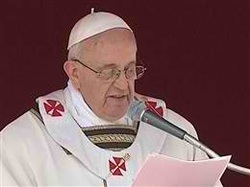
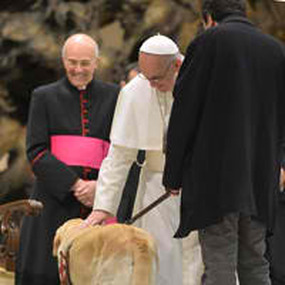
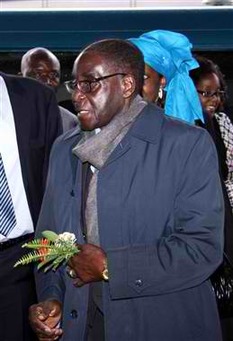
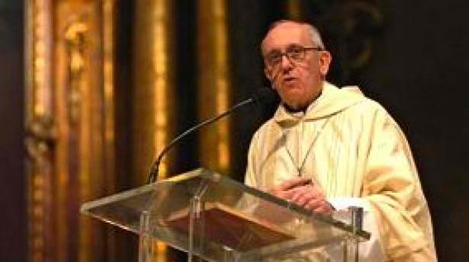
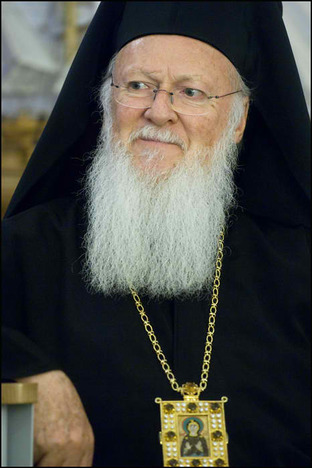
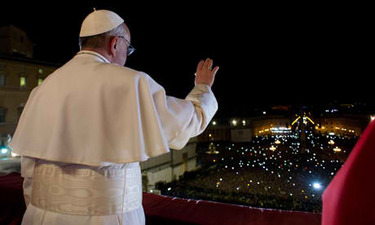
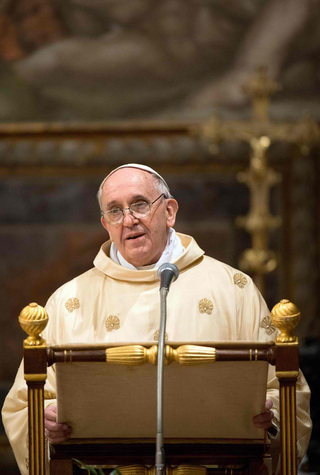
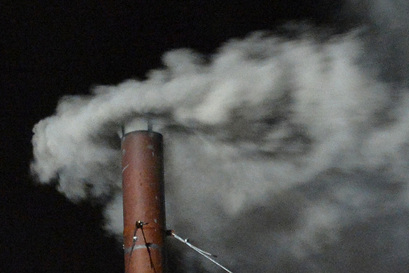
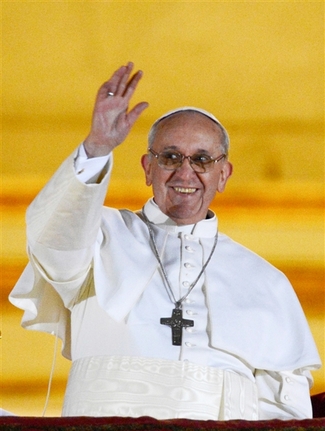
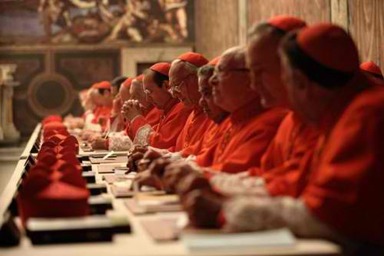
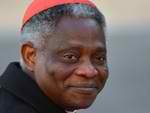
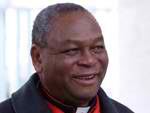
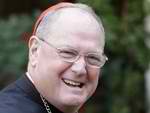
 RSS Feed
RSS Feed
